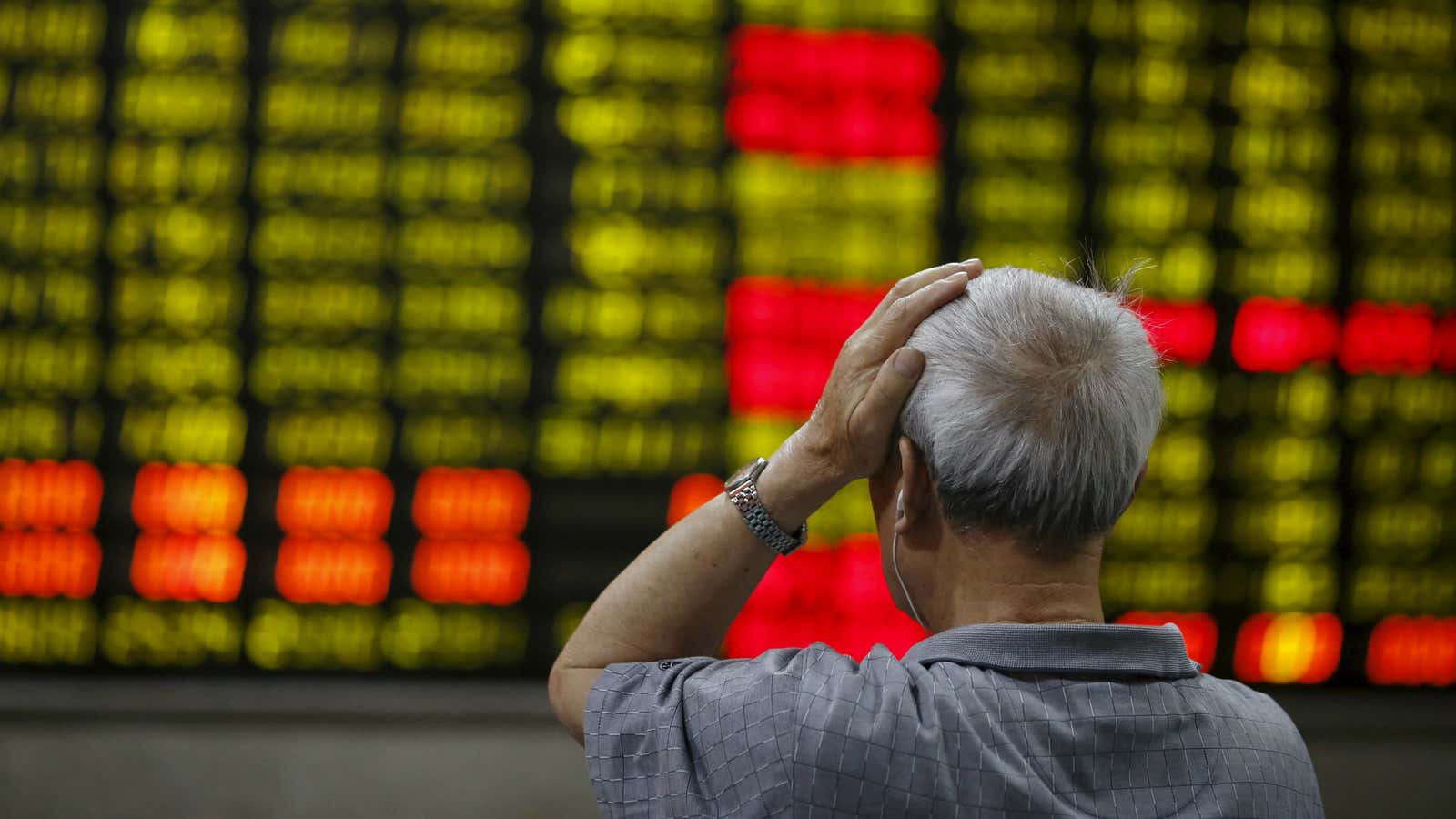During the tech bubble of the late 1990s, former US Federal Reserve chairman Alan Greenspan’s economic observations were so devoid of obvious meaning that they became their very own, much-mocked, language for the analysts, columnists, and economists dedicated to deciphering them.
Beijing’s support of China’s market run-ups, and response to their drops, on the other hand, has been very clear. When China stock prices flagged in January and May, the government, in the form of Xinhua, the state-owned news agency, successfully talked them back up, as Bloomberg reported—despite the fact that many outside observers thought China’s markets had become divorced from reality.
And this week, after a surprise rate cut didn’t work and China’s markets had fallen more than 20% from their recent peak (putting them firmly in bear market territory) market regulator China Securities Regulatory Commission jumped in:
In a direct message (link in Chinese) at 10:04pm June 29th on its Sina Weibo account, which is followed by about 4.4 million people, the regulator posted this response to “questions from a journalist:”
There have been people calling out the Chinese economy in an attempt to destabilize faith in the stock market and to disrupt the order of the market. The CSRC wishes investors to act independently of such rumors, not to fall for such claims, and not to follow them blindly.
Beijing’s finance and human resources ministry also said late Monday it may allow pension funds to invest nearly $100 billion in stocks for the first time. (Yes, it is a big number, but Shanghai stocks’ market cap is in the trillions, in comparison.) China’s asset managers chimed in with public statements on Tuesday that it was time to buy.
With absolutely no change in macro economic indicators or important positive company news, China’s stocks started to climb. By Tuesday’s close, Shanghai Stock Exchange’s Composite Index was up 5.5% for the day, the first positive close since June 24.
The Chinese government has a long history of keeping stock markets temporarily aloft with a combination of willpower, propaganda, and tweaking monetary policy, only to suffer the inevitable crash, as the Wall Street Journal’s Andrew Browne details in a June 30 column. But this policy is now on a collision course with Xi Jinping’s goal of opening up China’s markets to the rest of the world.
Through the Shanghai-Hong Kong Stock Connect, China is welcoming foreign investors into the company’s stock markets like never before. And a link with the even more volatile Shenzhen exchange, expected later this year, could bring more Chinese stocks together with foreign investors.
But completely independent information about many of the stocks, and the Chinese economy in general, remains scarce. Controls and corporate governance in Hong Kong, where Chinese investors and stocks meet foreign cash, are not strong enough.
Currently UBS and Goldman Sachs are the only foreign banks authorized to publish research in China about “A shares” that trade on Shanghai’s stock exchange. HSBC recently stopped sponsoring the “Flash PMI” index, one the the few independent gauges of China’s economic activity, allegedly under pressure from the Chinese government. The new sponsor, Caixin, is a well-respected independent media outlet, but not immune to government censorship.
The relative lack of information hasn’t stopped foreign banks from making negative calls about the market overall. Morgan Stanley’s much-heralded warning last week to not buy Chinese stocks “on the dip” comes after Credit Suisse, Bank of America, and BlackRock warned that China’s markets were a “bubble.”
There’s a reason they’re urging caution. The median stock on mainland exchanges was valued at 85 times earnings at this month’s peak, as Asian Financial Review noted. The New York Stock Exchange’s average price-to-earnings ratio, in comparison, was 21.2 on June 30.
Despite its efforts, Beijing may find that markets are harder to control than the press. After opening strong this morning, Shanghai’s Composite Index headed south once again, and closed down more than 5%.
